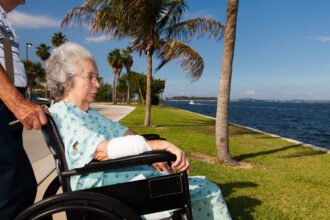The other day in the local supermarket I bumped into a neighbor who gave me bad news. She said a friend in town had been diagnosed with a stage four cancer and was in the midst of treatment. The patient is someone I am fond of and I was shocked to hear about her illness. That night I called and spoke with her husband, a very warm and caring man. He told me of the diagnosis, the referral to an oncologist and the move into standard treatment. I asked if they sought a second opinion. No. Did they ask about clinical trials? No. I bit my lip.
The other day in the local supermarket I bumped into a neighbor who gave me bad news. She said a friend in town had been diagnosed with a stage four cancer and was in the midst of treatment. The patient is someone I am fond of and I was shocked to hear about her illness. That night I called and spoke with her husband, a very warm and caring man. He told me of the diagnosis, the referral to an oncologist and the move into standard treatment. I asked if they sought a second opinion. No. Did they ask about clinical trials? No. I bit my lip. I hung up having offered support and wishing them well. But I was troubled that just maybe there was a better treatment they never heard about.
Just yesterday I interviewed more than ten experts in different forms of cancer. The doctors were at the American Society of Clinical Oncology (ASCO) annual meeting and their heads were swimming with results of the latest research. While cancer is still a fearsome foe, in many areas we are making real progress with targeted medicines and new ways to get those powerful medicines right to the cancer cells. That’s what is happening in one type of breast cancer (HER-2 positive), melanoma, prostate cancer and myeloma. Those interviews are coming soon.
As I interviewed the docs, I worried about my friend. Could some of this research benefit her? Was there a clinical trial where she could receive “tomorrow’s medicine today?” I discussed the whole issue of clinical trials and how to have patients understand the importance of learning about them with Dr. Tom Beer, one of the leaders of cancer research at Oregon Health and Science University’s Knight Cancer Institute in Portland. Dr. Beer just wrote a book called Cancer Clinical Trials: A Commonsense Guide to Experimental Cancer Therapies and Clinical Trials in an effort to have patients understand what trials are and learn how to consider if one could be right for them.
I know personally how devastating a cancer diagnosis is. Your world is turned upside down. But you have to take a deep breath and get smart about your disease. Otherwise you risk losing the opportunity to get the best treatment – even an experimental one – that could save or lengthen or life. I enrolled in a clinical trial in 2000 and I believe I am here because of it.
I pray my friend will do well with the tried and true therapy her husband described to me that night over the phone. But you, dear reader, if you are diagnosed with a cancer – and if you believe there could be promising research going on somewhere – you owe it to yourself to research and ask questions. Make sure that the best medicine has to offer, and the most promising research, is put on your side. As the doctors who attend ASCO can tell you, in the cases of men with advanced prostate cancer, people with advanced melanoma and breast cancer and many other conditions, lives are being extended with the latest science.
We have a long way to go, for sure, but for those who are patients or survivors, or who serve as caregivers, it is imperative to be in touch with the progress that may be shaping up for cancer.
Wishing you and your family the best of health!
Andrew







